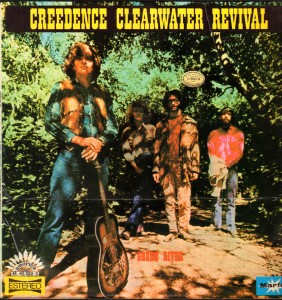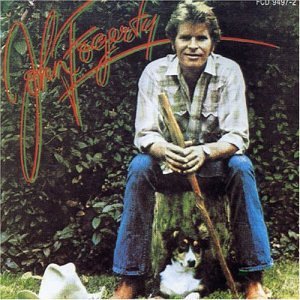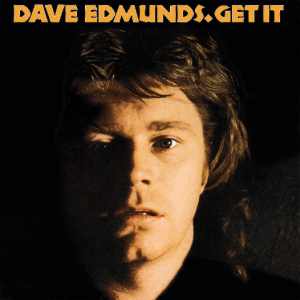Mod’s recent foray into the orange singles box of his youth and the inclusion of CCR’s superb “Commotion,” along with my recent viewing of CCR live at the Royal Albert Hall in April 1970, got me to thinking about Creedence. I never owned any Creedence singles and until my 30s, probably, never owned any Creedence albums other than an old tape I made of Creedence Gold way back. But just from listening to FM radio growing up, I knew a ton of Creedence recordings. Based on my occasional visits to classic rock radio in more recent times, Creedence is still in very heavy, one might say excessive, rotation, though a more limited selection of songs than in the olden days, I think. I suspect that to many younger listeners Creedence is overly familiar, beaten to death, worn out.
But, jeez, what a crazy burst of creativity their records are. Setting aside the pre-CCR Golliwog recordings, they hit the ground running with their first lp in July 1968, and over the next 2 1/2 years out pour five–five!–albums, ranging from very good to absolute killer: Bayou Country (1/69), Green River (8/69), Willy & the Poor Boys (11/69), Cosmo’s Factory (7/70), and Pendulum (12/70). (Clearly, sleep was not a priority in 1969.) Then, the afterthought of Mardi Gras (4/72). They place 14 songs in the Top 40 during that same 1968-1972 period (including the b-side “Commotion”).
John Fogerty’s post-Creedence records have never much interested me. The first record definitely has its moments and I think Mardi Gras does as well though I don’t know when I last listened to it. So, really, I think when we talk about CCR we are looking at the crazy-prolific 2-year span of 1969-1970. For my money, Green River and Cosmo’s Factory are the best of the lot. I never get tired of all 7 minutes plus of “Ramble Tamble.”
But the thing is, I know next to nothing about Creedence.




